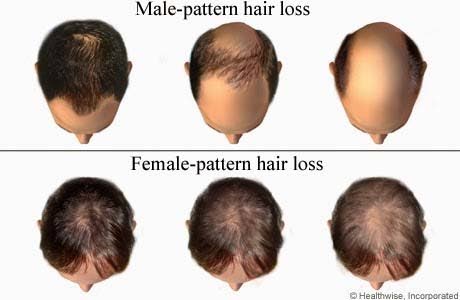Avoid pitfalls of hair loss

DR GERMAINE WILLIAMS-BECKLES
NINETY per cent of the world population will suffer with some type of hair loss at some time in their lives. Be aware, so you can avoid the pitfalls of this disorder which can be financially taxing and emotionally crippling. It is easy to become confused about what alopecia/hair loss really is, and the negative mindset that this disorder can have on those affected by it.
To give more insight into the condition, August and September were dedicated to building awareness for alopecia, which is the scientific term for hair loss.
Most people show a lack of concern until they have experienced hair loss or about 50 per cent of their hair is already gone. They are then confronted by thinning hair which can be worrying or confusing. I once suffered this very fate. About 25 years ago, I poured myself into hard work and started experiencing hair loss. I became desperate and began looking for answers, but there were no true answers. I became very confused until after a few years when I discovered the study of hair and scalp disorders called trichology.
I found out the hair loss I experienced was telogen effluvium, which was due to my suffering from anaemia and my toxicity levels were very high. In addition, a stressful lifestyle contributed to my hair issues. I had to make lifestyle changes to correct these disorders and to restore my health and hair growth cycle.
There are many types of hair loss, of which most people are unaware. There is a general feeling that there are only two types of hair loss: androgenetic alopecia and alopecia areata. However, there are a number of other types that are commonly seen. These include traction alopecia, central centrifugal cicatricial alopecia (CCCA) and telogen effluvium.
Androgenetic alopecia, is also known as male and female pattern baldness. This is the number one type of hair loss that most people with alopecia experience. Ninety-five per cent of all men and 70 per cent of all women with hair loss, will suffer from this type of hair loss, which is hereditary. Androgentic alopecia in both men and women can be treated similarly, however, there are certain considerations that must be given when treating hair loss in women versus men.
Women ago through menopause, hormonal changes, birth control pills, pregnancy, all of which can trigger the onset of hair loss immediately, or three months after the event. The solution to this condition, involves the use of DHT Inhibitors and improving your general health, through diet and/or a vitamin regime.
Alopecia areata, another type of hair loss, presents itself as small round spots, the size of a pea or larger, visible on the scalp. This can be a life-changing event for most people inflicted with this disorder, since it is related to the autoimmune system and can progress overtime to alopecia totalis, which is the total hair loss of the scalp. If left untreated it can lead to alopecia universalis which is characterised as hair loss of the entire body.

These are two different categories of hair loss/alopecia that cannot be treated the same, and should be treated according to type for best results.
Traction alopecia, central centrifugal cicatricial alopecia (CCCA) and telogen effluvium are types of hair loss that have become quite common.
• Traction alopecia (CCCA) occurs from physical action or strain on the hair follicles and is mostly visible on the hair line.
• CCCA is classified under autoimmune type of alopecia and is commonly seen by hair professionals and can be mistaken for androgentic alopecia.
• Telogen effluvium is a temporary shedding of hair from the follicle, caused by toxins, nutritional deficiency or emotional stress. Hair that should be in the growth or resting stage, go straight to the fall out stage or telogen stage. People with this type of hair loss tend to become concerned when seeing the hair strands on the floor, bath and/or sink. A classic example of telogen effluvium is the loss of hair that the people, recovering from covid19 are experiencing. Some are seeing clumps of hair in their comb while others are observing hair thinning.
Excessive dieting, and sudden weight loss are but a few concerns that can result in hair loss/alopecia. As with any other organ, the hair needs nutrients to grow. Stress can impede the absorption of nutrition, slowing the hair growth cycle. Medication, diet, and health also play an important role in hair loss/alopecia. Since hair is not essential for humans to survive, the nutrients you consume everyday will service the organs that are most important for survival first, easily effecting changes in the internal and external environment leading to alopecia/hair loss or other scalp conditions.
When my hair grew back, I promised myself to help others with their hair loss prevention and provide solution. Now I am in a good place. I love what I do, both in clinic and online, for others. In addition, I assist building awareness, globally, to the true biological reasons for hair loss.
Germaine Williams-Beckles is a doctor of trichology, author and a nutritional consultant:
www.germainewilliamsbeckles.com
; https://www.facebook.com/GermaineWilliamsBeckles/, germainewilliamsb@gmail.com or 627-4659

Comments
"Avoid pitfalls of hair loss"